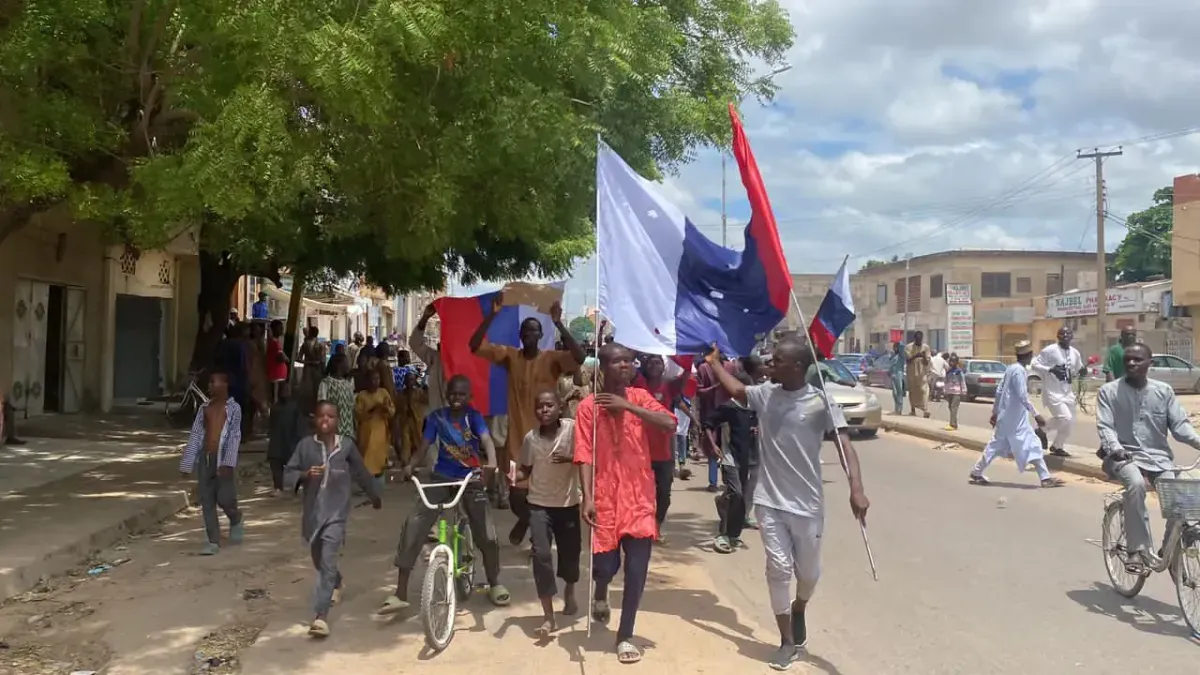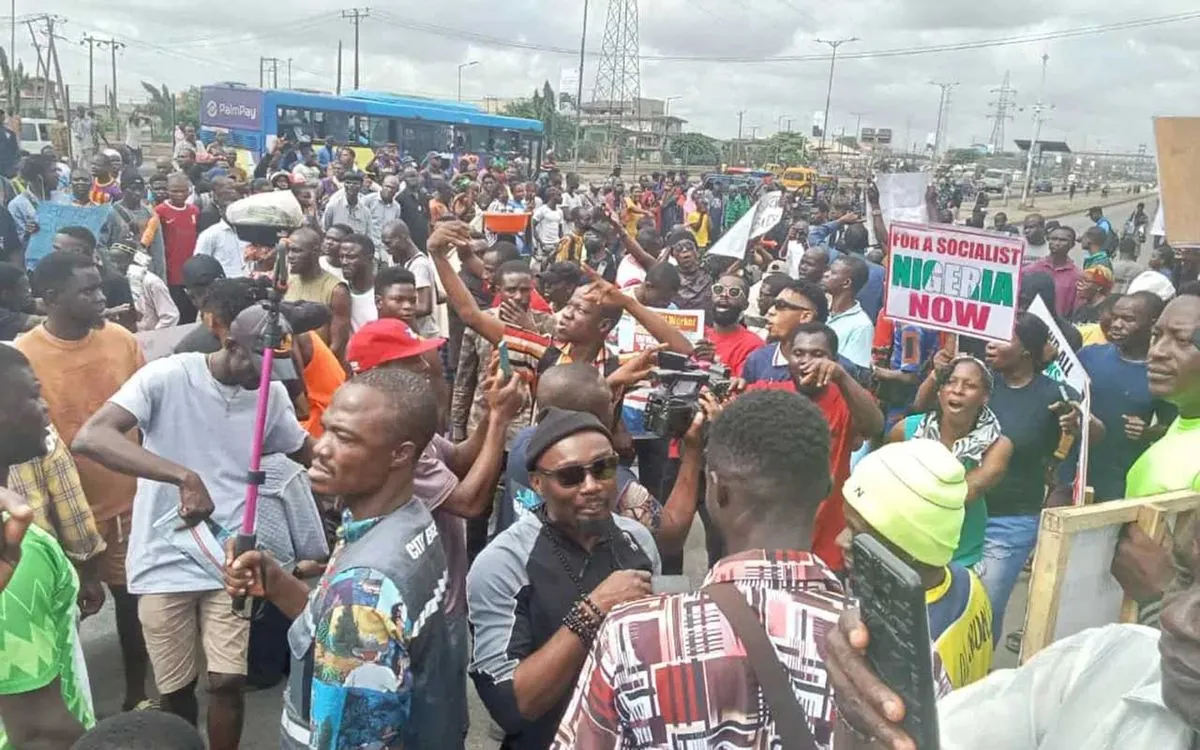Nigerian Authorities Detain Polish Nationals Amid Protest Controversy
Seven Polish citizens arrested in Nigeria for raising Russian flags during anti-government protests. Demonstrations against economic reforms turn deadly, raising concerns about foreign influence.

In a recent development, Nigerian authorities have detained seven Polish nationals for allegedly raising Russian flags during anti-government demonstrations in the northern state of Kano. This incident has occurred amidst widespread protests against economic reforms implemented by President Bola Tinubu.
The protests, which began on August 1, 2024, have been triggered by a series of economic measures, including the partial removal of fuel and electricity subsidies, currency devaluation, and inflation reaching three-decade highs. These reforms have significantly impacted the daily lives of Nigerians, leading to widespread discontent.

Tragically, the demonstrations have turned violent in at least six northern states, resulting in 22 fatalities, according to Amnesty International. The situation has been particularly tense in Kano, where additional protesters have reportedly lost their lives.
The appearance of Russian flags during the protests has raised concerns about potential foreign influence in Nigeria, Africa's most populous nation. Peter Afunanya, a spokesperson for the state security service, confirmed the arrest of the Polish nationals, stating that they were detained during efforts to maintain security.
Stanislaw Gulinski, the Polish consul to Nigeria, verified the arrests during a diplomatic meeting in Abuja. The Polish foreign ministry has stated that they are working to establish the exact circumstances of the incident and provide support to their citizens.
"Brandishing a foreign flag during anti-government protests is a treasonable offence."
This statement from General Musa came after security talks with President Tinubu on August 5, 2024, highlighting the government's serious stance on the issue.
It's worth noting that Nigeria, with its rich cultural diversity and over 250 ethnic groups, has faced numerous challenges since gaining independence in 1960. The country's history includes multiple military coups, and it continues to grapple with issues such as corruption, economic inequality, and insurgency in the northeast.
Despite these challenges, Nigeria remains a significant player on the African continent, boasting the largest economy by GDP and a thriving film industry known as Nollywood. The country's young population, with a median age of about 18 years, represents both a challenge and an opportunity for future development.
As the situation unfolds, the international community watches closely, with the Russian embassy in Nigeria denying any involvement in the flag incidents. The events highlight the complex interplay of domestic issues and international relations in this pivotal West African nation.


































